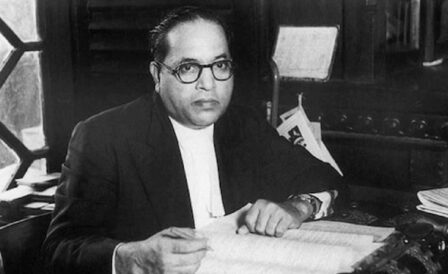
Image Credits: The Hindu
On 9 January 2023, the Governor of Tamil Nadu chose to skip certain portions of the speech prepared by the state government, while addressing the first session of the Legislative Assembly in the new year. The skipped portion included references to values like social justice and secularism, and the names of leaders like Periyar and Ambedkar. This kicked off a huge political row, with the ruling party in Tamil Nadu alleging a serious breach of “convention”.
What are these conventions, and why are they so important?
As the name suggests, conventions are long-standing practices or norms which are not legally enforceable, but are accepted by all parties. In the case of unwritten constitutions like that of the United Kingdom, the most basic elements of parliamentary democracy such as confidence of the majority and collective responsibility are backed only by the force of convention. Conventions can be as important as codified law, as long as there is political consensus to honour them.

India adopted the Westminster form of parliamentary government as well, along with its recognised conventions. Some conventions, such as that of collective responsibility, were explicitly mentioned and codified. Others, such as the President or Governor being bound to follow the advice of the Council of Ministers, have been left uncodified. In 1971, the Supreme Court clarified that the conventions of parliamentary government must be kept in mind while interpreting the Constitution.
The Governor’s address is adopted from one such convention. It is analogous to the ‘Speech from the Throne’ in the United Kingdom, where the monarch delivers a speech prepared by the Cabinet at the beginning of every session, outlining the legislative agenda of the government. Our Constitution codified this convention through Articles 87 and 176, directing the President or Governor to address both houses of the legislature together at the beginning of each year or after a general election.
Now, the Constitution does not go into the specifics of the content of this address. Conventionally, the speech is prepared by the Council of Ministers, outlining the legislative and policy intent of the government for the coming year. Presidents and Governors are not supposed to deviate from the text provided as per convention, though they have done so at times.
By skipping an entire section of the speech, the Governor of Tamil Nadu has broken this convention. The controversy foregrounds the already existing tensions between the Governor and the executive in Tamil Nadu. In November 2022, MPs from the state had even petitioned the President to remove the Governor, accusing him of deliberately delaying legislation and opposing a popularly elected government.
The breaking of constitutional conventions can trigger a number of negative effects. It can undermine the very idea of these conventions, encouraging constitutional actors across the spectrum to not follow them. This in turn can lead to erosion of inter-institutional trust, promote conflicts that interrupt with the smooth functioning of government, and stall policy implementation — as is evident in the case of Tamil Nadu.
Further, it can also open up space for judicial interventions and excessive juridification, thereby complicating matters which were best left to conventions. An example of this kind is the issue of the appointment of judges, which is done by the executive after consulting with the upper judiciary under Article 124. Scholars have argued that the convention of accepting the judiciary’s opinion has now been crystallised through the Second Judges Case which made the advice binding. But as recent events show, this matter is far from settled with increasingly strained executive-judiciary relations.
More blog posts

B.R. Ambedkar’s Justification To Restrict Fundamental Rights
10 December 2021 • By Meenakshi Ramkumar
B.R Ambedkar was faced with criticism from his Constituent Assembly colleagues: why were there restrictions on Fundamental Rights in the Draft Constitution?

Ladakh’s Sixth Schedule Demand
25 February 2023 • By Varsha Nair
Ladakh has been witnessing huge protests demanding constitutional safeguards for the region under the Sixth Schedule. We examine if this demand is legitimate.
